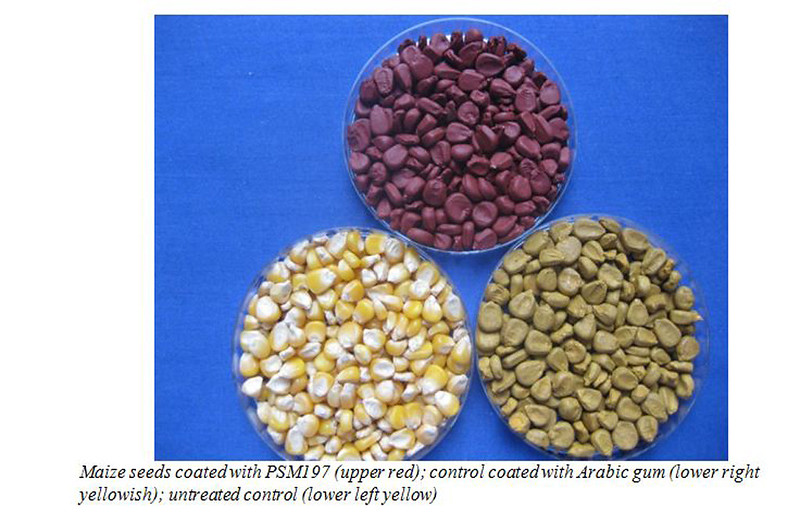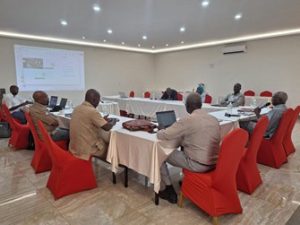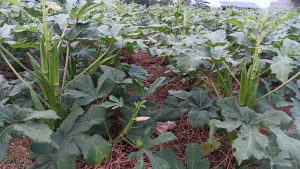TAAT Expands Toothpick Technology for Striga Biocontrol to Uganda and Beyond

In May 2024, a Technologies for African Agricultural Transformation (TAAT) team facilitated a crucial meeting to expand the understanding and adoption of Toothpick Technology’s innovative Striga biocontrol solution beyond Kenya into Uganda.
Striga, a parasitic weed that infests nearly 30% of maize crops in Uganda, poses a significant threat to food security across the continent. This meeting aimed to accelerate the adoption of this climate-smart and affordable technology to combat this devastating agricultural challenge.
The meeting featured various presentations, discussions, field visits, and testimonials.
Claire Baker from Toothpick Technology provided an overview of the project’s history and objectives, while Dorcas Kemboi highlighted the challenges of Striga management and the limitations of traditional control methods.
Henry Sila Nzioki from Kenya Agricultural and Livestock Research Organization (KALRO) discussed the biocontrol approach using virulence-enhanced Fusarium oxysporum. Dr. Peter Lüth presented advancements in the commercialization of Kichawi Kill, a promising seed-coating product.
Loise Kioko shared compelling data on the technology’s efficacy in Kenya, and Michael Njagi from the World Food Programme emphasized the importance of field collaboration for scaling up the solution.
A highlight of the meeting was a field visit to the Siaya Centre of Excellence in Kenya, where participants witnessed the Toothpick Technology in action. Testimonials from NGOs, researchers, and farmers underscored the growing demand for this affordable and effective technology.
Led by Dr Christopher Suh and Yarama Ndirpaya, TAAT’s Regional Coordinators for Central and East Africa, these testimonials highlighted the technology’s potential to significantly boost crop yields.
The meeting also fostered strategic discussions about Striga’s prevalence in Uganda, prompting stakeholders to prioritize holding a follow-up meeting with Uganda’s regulatory bodies in the coming weeks.
These discussions were crucial in developing a broader strategy to expand the technology to other Striga-affected countries across sub-Saharan Africa. As part of this strategy, Suh and Ndirpaya worked with the TAAT technology profiling team to ensure the Toothpick Technology is validated and registered in the TAAT e-catalog, a platform for showcasing innovative agricultural technologies
The meeting successfully laid the groundwork for extending the Toothpick Technology into Uganda and identified key opportunities for scaling it to other regions.
The participants agreed to form a network for Striga biocontrol advocacy to drive further the mission of combating this devastating weed and sustainably enhancing food security.
Established in 2018 as a central pillar of the African Development Bank’s Feed Africa strategy, TAAT represents a transformative initiative to reverse the trend of declining food productivity in Africa through the scaling of modern food production technologies to 40 million farmers across Africa, focusing on supporting young people and women in low-income regions.
TAAT has scaled up the dissemination of heat-tolerant wheat varieties, drought-tolerant maize, high-yielding rice, cassava, high-iron bean, sorghum, millet, orange-fleshed sweet potato varieties and high-quality livestock breeds, and fingerlings to more than 12 million farmers, boosting crop production by an estimated 25 million tonnes. This increase in food production is a testament to the programme’s effectiveness in enhancing agricultural productivity across the continent.
TAAT acquires cutting-edge technologies from developers and agricultural research institutions led by the CGIAR for several agricultural value chains covering crops, livestock and fisheries, vets them for scaling readiness and integrates them into its electronic technology catalogue.
TAAT engages governments to integrate proven technologies into their large-scale agricultural investment programmes and partner with the private sector to commercialise them.
Recent Stories
Related Stories
- GHANA: TAAT Engages Stakeholders on Innovation Platform Model
- South Sudan: TAAT facilitates workshop on Strengthening Emergency Preparedness and Response to Food Crisis
- South Sudan: TAAT holds High-level Consultative Workshop on Food Systems Transformation
- South Sudan: TAAT strengthens the varietal release system
- Uganda: TAAT showcases improved and resilient soybean varieties





